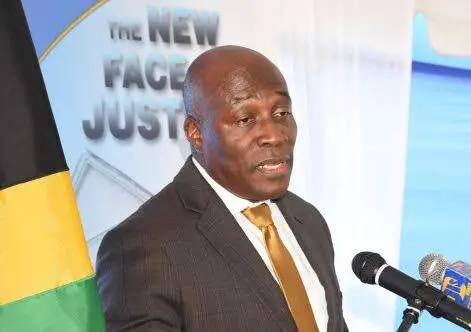KINGSTON, Jamaica — Chief Justice Bryan Sykes has called for greater recognition of the Caribbean Court of Justice (CCJ) as a pivotal institution in Jamaica’s legal and regional framework, emphasizing its significance in fostering regional unity and economic integration.
Speaking at the Referral Process Workshop Series hosted at the Jamaica Pegasus Hotel on Saturday, Sykes underscored the CCJ’s critical role within the framework of the Caribbean Community (Caricom), particularly in advancing the Caricom Single Market and Economy (CSME). He referred to the Revised Treaty of Chaguaramas (RTC) as the cornerstone for reshaping the Caribbean’s future.
“The CCJ, in its original jurisdiction, is central to the successful operation of the CSME. It provides the legal structure necessary to facilitate trade, resolve disputes, and ensure economic integration among member states,” Sykes noted.
Jamaica’s continued reliance on the UK-based Privy Council as its final appellate court has sparked debate in the broader context of constitutional reform and the nation’s aspirations to transition to a republic. This issue remains a contentious point between the governing Jamaica Labour Party and the opposition People’s National Party, with the latter firmly opposing the retention of the Privy Council as Jamaica’s highest court.
Despite the ongoing debate, Sykes highlighted the broader vision of Caricom, which goes beyond legal structures to address economic development and cultural transformation.
“The Revised Treaty of Chaguaramas aims to build a new Caribbean civilisation. It seeks to establish institutions free from the legacy of colonialism and slavery, focusing instead on economic growth and self-determination,” Sykes said.
He further stressed the CCJ’s unique role in interpreting and applying the provisions of the treaty, asserting that it empowers member states to chart their own course. “The CCJ is not just a court but a symbol of our collective ability to organise our affairs as we deem fit, without external interference,” he remarked.
In Jamaica’s current dual-court framework, the CCJ operates alongside the Privy Council, serving as the ultimate arbiter for matters related to the RTC. Sykes described this duality as an opportunity for Jamaicans to reflect on the benefits of regional judicial integration.
“This dual system offers a unique perspective, but as we continue our constitutional journey, it is vital to consider the advantages of consolidating our legal institutions under the CCJ,” Sykes explained.
The workshop served as a platform for legal professionals, policymakers, and academics to explore the role of the CCJ in advancing regional objectives and shaping a cohesive Caribbean legal identity.
As Jamaica navigates its constitutional reform process, Sykes’ remarks underline a growing call for the nation to embrace its regional ties and establish a justice system that aligns with the broader aspirations of Caricom.

